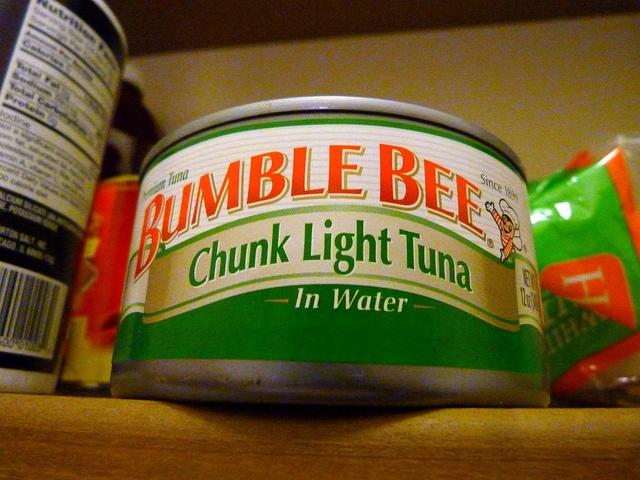
Concerned American tuna consumers have something to rejoice about. Thai Union Group (TU), a company linked to human rights and environmental abuses within Thailand's tuna industry, recently announced it terminated its acquisition of American canned tuna company Bumble Bee Foods.
TU announced in December 2014 that it agreed to acquire Bumble Bee. TU and the Lion Capital “vigorously advocated the merits of the deal to the U.S. Department of Justice,” as stated in a press release, but it concluded that it was unlikely to receive clearance in the stipulated time in the share purchase agreement.
“We have put a lot of efforts to get this deal approved. However, we also recognize that the clearance is now unlikely due to a higher level of complexity in the process,” said Thiraphong Chansiri, president and CEO of TU. “We have decided to focus our energy on our existing business. Thai Union remains committed to the North American seafood market.”Greenpeace launched a campaign to improve the tuna industry, targeting TU because the company is the world’s third largest seafood company. It produces nearly a fifth of the global tuna supply, and about 40 percent of all Thai tuna is sold by TU. As a recent Greenpeace report puts it, “Every second, the company exports the equivalent of about 157 cans of tuna from Thailand.”
TU's decision to back away from the acquisition of Bumble Bee tuna is “good news for consumers globally,” said Greenpeace USA oceans campaigner, Kate Melges, in a statement. “Thai Union has been linked to far too many serious labor abuses and destructive fishing practices to be taking on new brands without sorting out its existing problems."
Thailand's tuna industry is rife with human rights abuses and environmental destruction
The Greenpeace report reveals just how bad the conditions are in Thailand’s tuna sector. The report links the Thai industry to human trafficking, debt bondage, child labor and forced labor. Tuna workers also regularly suffer from a slew of human rights abuses and labor violations. There are human rights abuses perpetrated against those who help catch the tuna and those who process it. “Research indicates that egregious human rights and labor abuses are also present in tuna supply chains,” the report states.Thai Union owns the popular American canned tuna brand Chicken of the Sea. Earlier this year, reports by the Associated Press and New York Times revealed the human rights abuses that are part of the Thai tuna industry. The AP investigation revealed that slave labor is part of the industry, tracking 40 Burmese slaves who worked on tuna vessels. The New York Times investigation discovered that labor abuse at sea “can be so severe that the boys and men who are its victims might as well be captives from a bygone era.”
A 2014 U.S. State Department report ranked Thailand as a country that is a “source, destination and transit country for men, women and children subjected to forced labor and sex trafficking.” The report found that many are exploited in the Thai fishing industry.
Environmental destruction is also tied to the Thai tuna industry, according to the Greenpeace report. There is evidence that Thailand’s fish stocks have greatly declined over the last 50 years. There is a link between the dwindling fish stocks and the human rights abuses in the tuna industry. Since the yields are “increasingly poor” in Thai territorial waters, as the report points out, there is pressure put on the operators of fishing vessels: They are forced to go further out for longer periods of time “using unsustainable methods.” So, vessel operators have turned to human trafficking networks to supply their crews and decrease labor expenditure.
Image credit: Flickr/Rusty Clark

Gina-Marie is a freelance writer and journalist armed with a degree in journalism, and a passion for social justice, including the environment and sustainability. She writes for various websites, and has made the 75+ Environmentalists to Follow list by Mashable.com.














